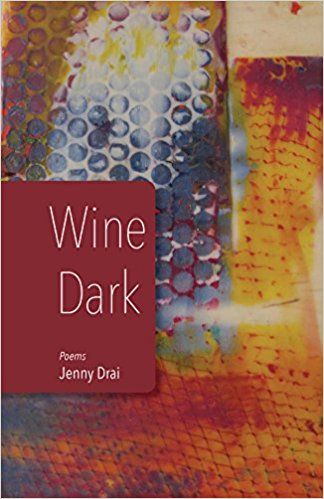Available here at Small Press Distribution.
Jenny Drai’s The History Worker examines the author’s experience as the descendent of Romanian and German immigrants and leads the reader on a journey that begins with (and coalesces around) a visit to Hearst Castle, built on what was once native Chumash land. This journey also takes turns through Drai’s childhood as she comes to map out and identify perhaps one of the most damning collisions between US history and the immigrant experience: namely that it is impossible to ‘discover’ a body of land that is already populated. Sometimes pointed, sometimes dreamy, The History Worker charts out and examines the influences on one individual’s imagination. The author remembers elementary school history lessons and early years spent paging through Will and Ariel Durant’s popular history opus The Story of Civilization.She considers the influences of, as an adult, watching Deadwood (with its own Hearst tie-in) and engaging with Wolfram von Eschenbach’s Parzival. Drai explores how what has been absorbed by imagination can correspond to and encourage necessary questioning of the often incomplete record of US history. Grounded in a child’s curiosity, The History Worker invites the reader to both “be your own damnation” and to “restore ‘personally’ the manifestations of memory and of history.”
Praise for The History Worker:
Anyone with a history should read Jenny Drai’s The History Worker. This book takes you from the lapidary Hearst Castle extravagance of California’s Central Coast through America to the wilds of Romania and other European outposts. Several journeys, a commentary and much history occur in a broken yet flowing text of details, discoveries and imprecations. We are caught up in Drai’s expeditions and implicated by her discoveries. The History Worker is “a sweet and voyeuristic pickle/marathon of wick-light” in the best, most dazzling sense.
—Laura Moriarty
Jenny Drai's History Worker works— hard. This book does the work of historical thinking & play. It opens with a "frame" for the reader, creating a structure of reference that includes George Hearst, Richard III, Deadwood, Vikings, magpies & more. "The artifact, this mind, pushes through," Drai writes. The poems use space & caesura, sound & echo, & the fragments of history to make "a house carved out about your inquiry." What are the layers of history— & how they overlap, lapping each other— making rhymes in history in readers' minds? What is the work of history? It is in the work of this writing— the work of inquiry, the work of "a person, within history," the work of documentation & notation, the work of "a multiplicity of reference." I love this book. I love how it revisits the history we are drawn to as children— "your life collects in what heart you choose" — how we turn & return to that history as adults to read a new text through it like a palimpsest made by our own reading & writing lives.
—Pattie McCarthy




